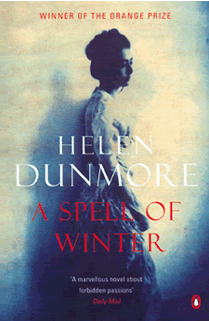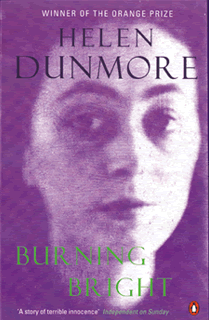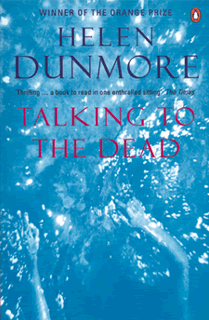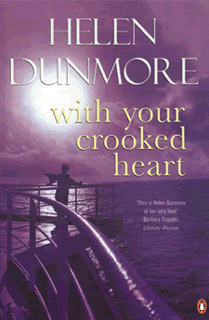





Critics frequently refer to the darkness and tension at the heart of Helen’s work. A Spell of Winter (1995), which won the first Orange Prize for Fiction, was likened to the novels of the Bronte sisters with its blood, cruelty, madness, compulsive love, family secrets and crumbling ruin of a once grand house. Yet despite the pain, there is still the hope of a second chance and of reconciliation through love and self-awareness. This was Helen’s third novel and its success marked the turning point of her career as a writer.
The importance of families and of stories as forces that form our lives are often central themes in her fiction. In interview she has said:
As individuals, we are shaped by story from the time of birth; we are formed by what we are told by our parents, our teachers, our intimates... Family story and public history make sense of an individual’s place in the world.
In Mourning Ruby (2003), for example, the main characters do not have traditional families and are keenly aware of the gap this has left in their lives. Sharing stories gives them strength and hope, offering a possibility of healing. The central figure, Rebecca, was left abandonedas a baby in a shoebox outside a restaurant and knows nothing of her family. During the process of mourning the death of her daughter she finds comfort in the stories of her employer, Mr Damiano, who grew up in a family circus, and in the novel written by her friend, Joe, based upon his absent father’s past and Rebecca’s unknown family tree. The absent or remote parent is a recurrent motif in Helen’s work.
Critical acclaim
Deceit gives Helen Dunmore’s novels a jagged edge. Secrets, unspoken words, lies that have the truth wrapped up in them somewhere make her stories ripple with menace and suspense.
Sunday Times (Zennor in Darkness 1993)
The tautly plotted circle links present to past, cause and effect, the dead with the living... a wonderfully bracing read. Written with guile that makes it seem guileless, and full of integrity, this is Helen’s darkest rainbow.
Independent (Burning Bright 1994)
Unsettling love and stifled horror create and then destroy the claustrophobic world of this lush, literary gothic set in turn-of-the-century England… Helen’s keen, close writing is deserving of Britain’s prestigious Orange Prize… a finely crafted, if disturbing, literary page-turner.
Publishers’ Weekly (A Spell of Winter 1995)
...her capacity for hauntingly psychological storytelling is on brilliant display. She unwinds powerful themes – sibling love, retrieved memory, fear, the violence of children… This is a memorable and assured work.
Sunday Times (Talking to the Dead 1996)
Helen is chillingly adept at the portrayal of lust and its close cousin, revulsion... she explores the slow-burning preliminaries to the kind of violence possible in the most ordinary and controlled of lives.
Independent (Your Blue-Eyed Boy 1998)
Helen Dunmore’s novels are gorgeous, brutally sensuous and disturbing. Springing from a poet’s sensibility and vision, they ravish the reader... Rich, tense, tragic and almost unbearable reading.
The Times (With Your Crooked Heart 1999)




